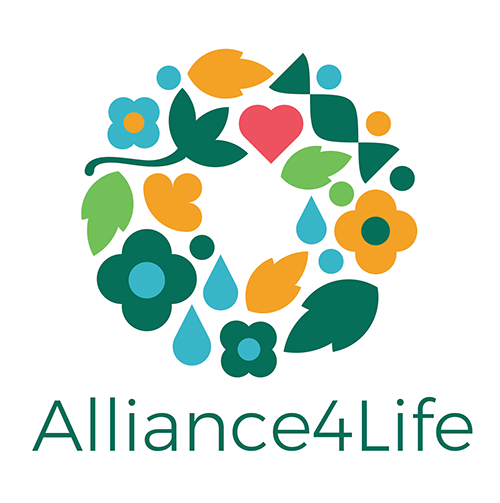
Alliance4Life suggests a modern approach to Widening measures
On December 12, 2023 the Alliance4Life consortium composed of 12 top-level life science institutions from 11 countries in Central and Eastern Europe hosted the conference "Widening Instruments – Participants' View" at the Permanent Representation of Estonia to the EU in Brussels.
The conference targeted a broad audience from politicians to policy-makers and practitioners. Special attention at the conference was paid to Alliance’s experience with the Widening measures and the resulting recommendations for shaping future Framework Programme. The Alliance’s policy paper on the efficiency of WIDESPREAD measures was presented, which contains both desktop research and results of structured interviews with Alliance4Life’s member representatives. The paper provides valuable insights and recommendations based on the experiences of Alliance’s members focusing on the Widening measures of Twinning, Teaming, and ERA Chairs by examining their impact, challenges, and sustainability at national and European levels. The conference provided a venue to present the conclusions of the policy paper and clarify the opinions of the study to the decision-makers.
A common theme among the conclusions drawn and suggested policy changes is the need for the EU to understand and consider the experiences of the participants in the widening measures. Without adequate feedback from the targets of their policies, the policies cannot be fully effective. Examples include the need to shift the widening paradigm from „supportive to empowering“ and a focus on proper follow-up measures in the programme.
The welcoming words of the conference on behalf of the organizers were delivered by Kristel Oitmaa, Estonian Liaison Officer for EU R&I in Brussels. The programme included four presentations by experts from the European Commission and participating Widening countries of the Alliance4Life.
Signe Ratso, Deputy Director-General, DG RTD, titled her presentation “Horizon Europe mid-term: what we’ve learned and what’s next”. Mrs Ratso emphasized the successful example of the Alliance4Life among the Widening countries. Despite unfavorable historical background, the universities and institutions in these countries have implemented a series of reforms and rapid changes. Some Widening countries have performed very well in Horizon2020, especially Cyprus, Slovenia and Estonia benefitting most per capita and investing themselves more to science and excellence, but the overall increase of Widening countries’ funded budget is also positively 1,5% in comparison with FP 7. However the FP 10 is still in early planning phase, the Widening budget is expected to increase to 3,3 % of the total FP accompanied by the wider portfolio of topics. Ratso concluded that the impact of Widening measures can only be assessed after a sufficient amount of time has passed.
Stefan Weiers, Head of Sector ‘Widening, ERA and Research Infrastructure Programming’, DG RTD, dedicated his presentation “The widening component in Horizon Europe and Horizon 2020 – lessons learned and future perspectives” directly to the Widening component and its future implementation. Mr. Weiers provided a concise overview of Central and Eastern European (CEE) countries' experiences in framework programs and Widening measures. The current status and success rates in FP should be understood in the context of limited R&D investments, weak national R&I systems, lack of synergies, insufficient information, and lower salaries. Success in H2020 Widening measures depends on strategic choices by each country, such as Cyprus focusing on Teaming and Estonia on ERA Chairs. Portugal's success stems from investing across all measures. Despite ongoing innovation gaps, FP 10 details, including the global and Widening budget, beneficiary selection, and supported activities, remain still unclear. The European Commission encourages countries to undertake reforms and institutional changes beyond relying solely on Widening funding.
Jiří Nantl, Deputy Minister of Education, Youth and Sports in the Czech Republic and Chair of Alliance4Life, highlighted lessons from the alliance's 5-year activity. Alliance4Life focuses on institutional reforms by participating institutions to boost competitiveness, empowered by Widening measures. The Widening focus has shifted eastward, supported by foreign policy. The alliance serves as a European role model, emphasizing the importance of groundwork before seeking additional funds. Closing the gap between old and new EU countries involves more than funding, addressing career systems, policies, ecosystems, and supporting mechanisms. Successful Widening correlates with good governance, institutional management, and internal culture. Nantl emphasized the need for the new ERA to be led from the middle, involving rectors, vice rectors, and principal investigators.
Toivo Maimets, a Professor at the University of Tartu and Deputy Chair of Alliance4Life, summarized key findings from the Alliance's policy paper on WIDESPREAD measures in the FP. He emphasized the goal of addressing the innovation gap and fostering a more integrated European research and innovation ecosystem. Despite a gradual increase in Widening countries' participation in the FP, disparities persist, particularly in success rates for ERC and EIC grants. Recommendations from the policy paper include shifting from supporting to empowering, enhancing coordination at national and EU levels, improving call coordination, and accelerating strategic changes.
Formed in 2017, Alliance4Life successfully executed its first Horizon 2020 action in 2018-2019. It is currently engaged in the second H2020 project through spring 2024. Plans for a follow-up 4-year Horizon project focus on enhancing the institutional profiles of its members to attract and retain international talents with the aim to create favorable operational conditions, improve research management, and address historical challenges. Alliance4Life strives to be a model for institutions in less developed regions in Europe, collaborating closely with established European networks. Additionally, the Alliance actively contributes to science policy, shaping priorities at national and EU levels, and providing insights for increased participation in the Framework Programme.
The event was moderated by Zlatuše Novotná, Alliance4Life Coordinator, Head of Strategic Partnership and International Relations in CEITEC Masaryk University. The event was attended by 48 participants.
The event was organized in cooperation with the Estonian Research Council in Brussels and the Embassy of Estonia in Belgium.
The full article can be found HERE.
All photos were taken by Michael Chia.

